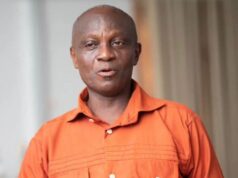The Electoral Commission has explained that it went to the Supreme Court on the matter of Dr Papa Kwesi Nduom’s disqualification as a presidential candidate to avoid dragging the multiplicity of suits currently pending at the Accra High Court.
Speaking on BBC Africa Thursday, Mrs Osei said there was the possibility that the various suits would have different rulings and that could have further prolonged the legal tussles between the Commission and the political parties.
“They [disqualified aspirants] have the right to go to court but they are all at the High Court so you have a situation where you can have different courts giving different ruling. So, if one High Court says accept this candidate and another High Court says do not accept the candidate, it is not a level playing field,” she explained.
Asked by the interviewer, Akwasi Sarpong whether the EC would be able to organise the elections on December 7 taking into consideration the multiplicity of suits, Mrs Osei said the Supreme Court was aware of the timelines and it was for that reason that the commission requested for the court to set an early date for the case.
Mrs Osei further explained that “what the commission did was to make an application to the Supreme Court. That is the apex court in Ghana and there is finality to what the Supreme Court says and the lower courts are bound by decision of the Supreme Court.”
“Because that case devolved heavily on the meaning of the nomination period, once the court speaks to that, and then everyone knows what the actual nomination period is and whether the commission can legally permit corrections now,” she added.
“Now, if you don’t do what we’ve done, you risk a multiplicity of high court suits.”
Mrs Osei said the commission has started the process for the printing of parliamentary ballot papers.
“In fact, we’ve told the Supreme Court what the timelines are and how much time we need with the printers to print the presidential ballots…And so we are in a good place to meet the December date,” she said.
She expressed the hope that the Supreme Court would give a definitive ruling early next week.
Mrs Osei also noted that what was left for the commission was to make available to the political parties the list of early voters, proxy voters, transfer list and all other lists that go with the register.
By: Graphic Online























